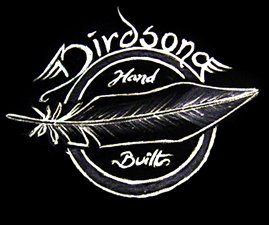I have a deep love for simple machines. The single blade pocketknife as a cutting machine; the old 4-track cassette recorder as a sound-on-sound machine; an old car as a transportation machine. Not a device, that’s taken on implications of computer control and software and buttons – but a machine. Mechanical connections. Rivets and screws, belts and levers… bendable, shimable, fixable stuff. So I was completely grooving on a cheapie wick-type oil lamp – what it is, how it works. It’s thin stamped metal, a wick, a lever, and you add a little lamp oil and flame and your room is full of soft warm light. Plugged into nothing. I love this thing. A simple light machine.
I took a Coleman camp stove that hasn’t been used in 12 years and hadn’t been stored all that kindly, chipped out the old mud dauber pueblitos, blew a little air through the tube, rubbed a little oil on the pump plunger seal, filled it with fresh fuel, and the sumbich fired right up. It ran so well after a while I cooked dinner on it. The thrift store had a small cassette recorder… to spare some wear and tear on the one I keep around for riffs and stuff (because the recordings never just disappear because some stupid digital gizmo stopped working), I picked it up - $1 and it still worked. I’m not looking for high fidelity in this tool, I’m looking for a way to go through an entire box of unlabeled cassettes and sort out whether they’re idea tapes, 4 track from the PortaOnes, 8 track from the 488s, spoken word, or long misplaced recordings of vinyl albums or live bootlegs. Or, the occasional treasure like the entire Randy Dritz interview from when we were resurrecting SD Curlee in 2011 (He’s the D) and he came down to visit. Think I got my buck’s worth out of that old simple machine that still worked? Huh? Huh? Do yeh? Huh?
My ’60 Pontiac needs one new part to run again – it got put on the back burner last fall and I’ve been too busy to play with it, but I can go out there any time now or in five years and pop that part on, pour a little gasoline down the carb, and it’ll run like a mutha. How do I know? Because that’s how simple machines do it. Even if that thing needed an entire engine swap, it’s a handful of wrenches and a weekend with a friend. I swapped the engines in Joe The Truck (’74 Dodge) and a ’67 Plymouth Valiant named Becky I had by myself. Heavy, kinda sketchy in moments, scrapes & mess galore, but SIMPLE. Fixable. Easy to make it work. And durable, from good parts. Hell, I pulled an old ’62 Valiant (Alvin) out of the junkyard and had it running in an hour, running up and down the driveway. (It’s a long driveway way out here.) And I’m just a parts swapper, I’m no ace with a wrench.
My life is full of simple systems. I endeavor to be a simple system. Complicated relationships? Sorry, you’re gone. At its basic functional essence, all of this is what I aim for in the design & function of a Birdsong. This is not a high maintenance tool; not a finicky partner. I’ve owned those – beautiful works of playable art that needed adjustment every time they came out of the case. Way back I traded one for a ‘70s Music Man. Just a solid chunk of bass. I always wondered if there was something that had a bit of both… and maybe less reach and didn’t weigh as much as a Buick either. So here we are, all Birdsong and stuff years later. Underneath all those high end expensive parts and the picked out wood and professional workmanship? I want a simple tool for you. Built strong, made sturdy. One you can plug in today or five years from now and it’ll run like a mutha. Why? Because that’s how simple machines do it.
Rock on.
Listening to: Alien Groove Therapy, some jazz, Sticky Fingers by the Stones.








